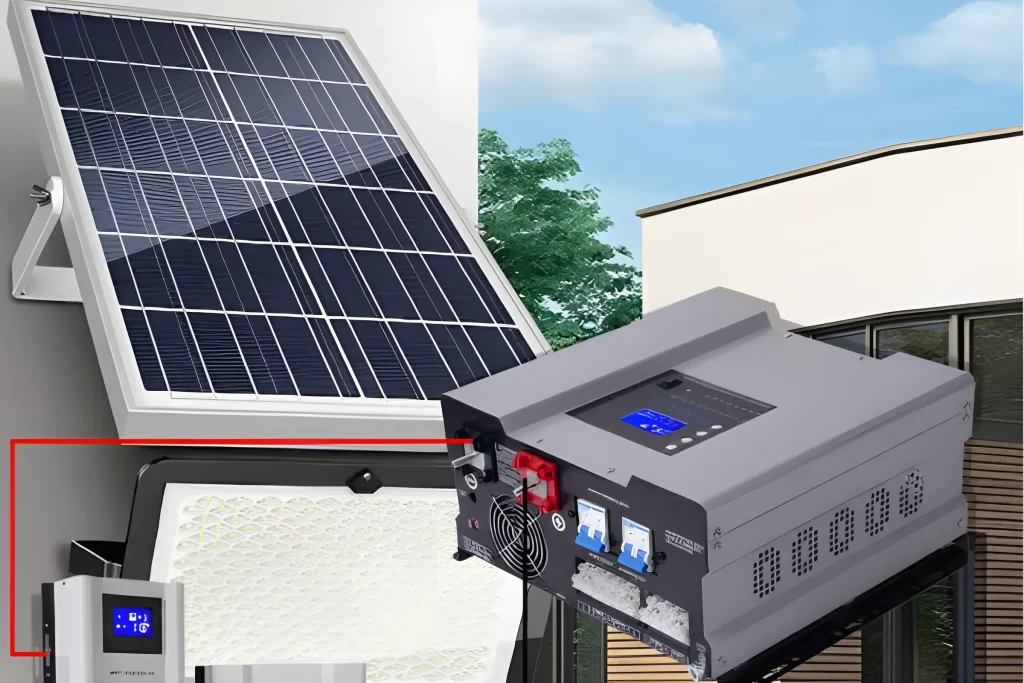As the world increasingly turns towards renewable energy, the focus on solar technology, particularly solar inverters, has intensified. Solar inverters play a crucial role in converting the DC electricity generated by solar panels into AC electricity, which can be used by household appliances and fed into the grid.
Recent advancements in this technology, especially in Solar Off Grid Inverters, have significantly improved the return on investment (ROI) for solar systems. Powerhousexpress, a leading provider based in Pakistan, is at the forefront of these innovations.
The Role of Solar Inverters in Enhancing Solar ROI
Solar inverters are more than just converters; they are the brains of a solar panel system. They manage the voltage to maximize power yield and provide important safety checks. Traditional inverters did this job adequately, but modern advancements have seen a leap in their capability and efficiency. The introduction of smarter, more efficient inverter technology ensures that maximum electricity is derived from solar panels, enhancing the ROI by reducing waste and increasing production.
Advancements in Inverter Technology
The latest in solar inverter technology includes features like MPPT (Maximum Power Point Tracking) and improved efficiency ratings. MPPT allows the inverter to extract the most possible power from the solar panels by adjusting the load dynamically according to sunlight conditions. This technology is particularly effective in areas with variable weather conditions, ensuring that even on cloudy or overcast days, energy production remains as high as possible.
Furthermore, modern inverters are now equipped with smart technology that enables homeowners to monitor their system’s performance in real time. This technology not only provides data on energy production but also alerts users to any maintenance needs, preventing costly downtime and maintaining efficient operation.
The Importance of Solar Off Grid Inverters
Solar Off Grid Inverters are a significant development for areas where grid connectivity is unreliable or non-existent. These inverters allow for the storage of excess solar power in batteries instead of feeding it back into the grid. This stored power can be used during nighttime or during power outages, ensuring a continuous power supply.
Powerhousexpress has developed a range of off-grid inverters that are not only efficient but also robust, capable of handling the variable load demands typical in residential and commercial settings. These inverters come with enhanced battery management systems that prolong the life of the batteries by preventing overcharging and deep discharge, further improving the overall ROI of the solar installation.
Solar Inverter Efficiency and Reliability
Efficiency and reliability are the hallmarks of modern solar inverter technology. Advances in semiconductor materials have led to the production of inverters that operate at higher frequencies and efficiencies, translating into better performance and longer lifespans. These inverters can operate more reliably under the harsh environmental conditions often found in Pakistan, from extreme heat to dust and humidity.
Powerhousexpress ensures that its inverters meet the highest standards of quality and reliability. Each inverter goes through rigorous testing to guarantee that it can withstand local conditions and continue to operate efficiently for years, thereby protecting the investment of the consumer.
Conclusion
The advancements in solar inverter technology are transforming the landscape of renewable energy by making solar installations more efficient, reliable, and profitable. For consumers in Pakistan, Powerhousexpress is providing cutting-edge technology with its range of solar and off-grid inverters that maximize solar ROI. As this technology continues to evolve, it will play a crucial role in the global shift towards sustainable energy, offering significant benefits not only economically but also environmentally.
Investing in a solar system with the latest inverter technology from Powerhousexpress is more than just a financial decision; it’s a step towards a sustainable and self-sufficient future.





























